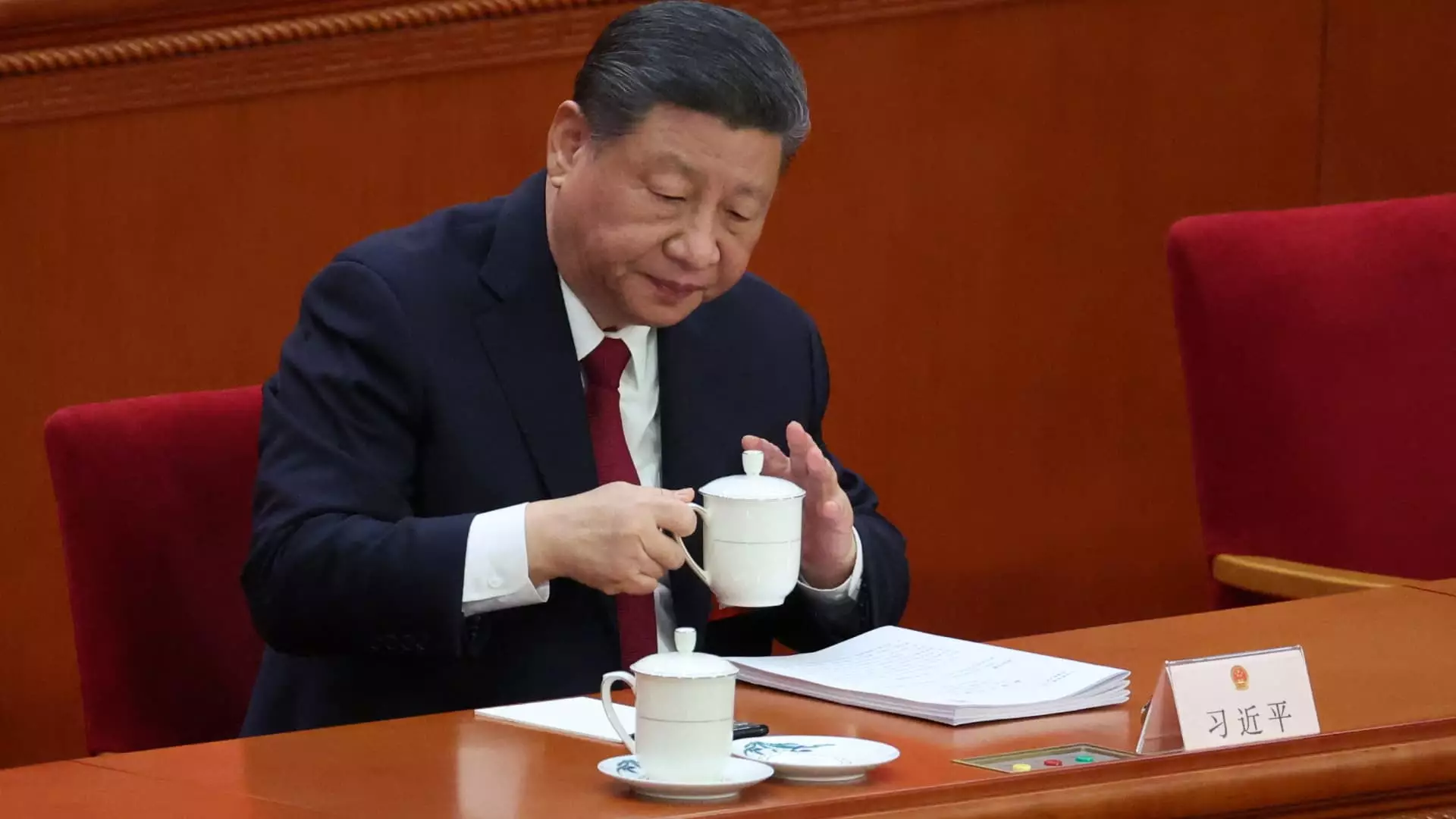In a world becoming increasingly polarized, China’s economic landscape faces significant hurdles. A recent meeting chaired by President Xi Jinping highlighted the government’s acknowledgment of “increased external shocks” impacting business stability. This admission comes against the backdrop of escalating tensions with the United States, marked by the introduction of punitive tariffs exceeding 100%. Such aggressive moves not only jeopardize economic partnerships but also send ripples through global markets, leading to major Wall Street banks slashing their GDP forecasts for China this year. The optimistic pursuit of a 5% growth target now seems more like a lofty aspiration rather than an attainable goal.
The implications of these external pressures are critical. Crucially, we must recognize that while macroeconomic policies can provide a buffer, the real challenges lie in addressing the specific needs of struggling businesses. It’s not enough to issue blanket financial support; targeted, precision-driven interventions are essential. As the world becomes more interconnected, China’s response to these external shocks must be nuanced and adaptable.
Reformative Policies: A Path Forward
As per the recent Politburo meeting, the Chinese leadership called for “multiple measures” to alleviate the burdens on businesses. However, these propositions, such as reducing interest rates and adjusting the reserve requirement ratio, appear reactive rather than transformative. A truly innovative approach would involve a comprehensive restructuring of fiscal policy—one that prioritizes sustainability over short-term relief. Increasing the deficit target to 4% of GDP is an initial step, but it must be backed by a robust framework that encourages long-term investment and growth.
Moreover, the emphasis on technological integration, particularly in artificial intelligence, represents a double-edged sword. While technology undoubtedly has the potential to revitalize sectors, it could also exacerbate inequality if not handled with care. Policymakers must consider how these advancements can be harnessed to uplift middle and lower-income groups, rather than concentrating wealth in the hands of a few tech giants.
Champion Middle-Class Growth and Domestic Consumption
An essential point of focus highlighted in the recent discussions was the importance of boosting the income of middle and lower-income demographics to stimulate domestic consumption. This is not merely an economic strategy—it is a moral imperative. A thriving middle class is the bedrock of a robust economy. By ensuring that these groups have access to better wages and varied consumer choices, China can create a more resilient economic environment less susceptible to external shocks.
Furthermore, local governments and enterprises have begun to redirect their efforts toward developing domestic markets. This is critical: instead of solely relying on exports, a multifaceted approach that nurtures local innovation and supports grassroots entrepreneurship is essential. Policymakers need to actively create an ecosystem where new businesses can flourish—this means revisiting regulatory frameworks that may stifle creativity and innovation.
Transparency and Collaboration: Laying the Groundwork for Stability
The Politburo’s output, while somewhat predictable in its directives, underscores the need for transparency in communication between the government and business sectors. Trust is an essential currency in any economic recovery plan, and the establishment of clearer guidelines can foster a better environment for private sector growth. It is vital that business leaders understand the government’s strategies and timelines so they can plan accordingly.
Moreover, the National People’s Congress’s upcoming review of measures to enhance the private sector raises hope for a more supportive legislative environment. This is an opportunity for leaders to devise laws that not only stabilize businesses but also encourage foreign investment, cultivate innovation, and ensure competitive practices.
A Call to Action: Urgency in Policymaking
Addressing the looming economic challenges requires more than incremental reforms; it calls for a profound shift in China’s approach to governance and economic collaboration. Inaction or delay in responding to these external pressures only compounds risks. As the interconnectedness of global trade complicates economic landscapes, China must assert itself not merely as a dominant player but as a leader advocating for cooperative economic frameworks.
In navigating these turbulent waters, greater collaboration between policymakers, economists, and industry leaders is imperative. By embracing a broader perspective that prioritizes inclusive growth, fostering a tech-savvy population, and enhancing domestic capabilities, China can emerge stronger and more resilient amidst external uncertainties.

